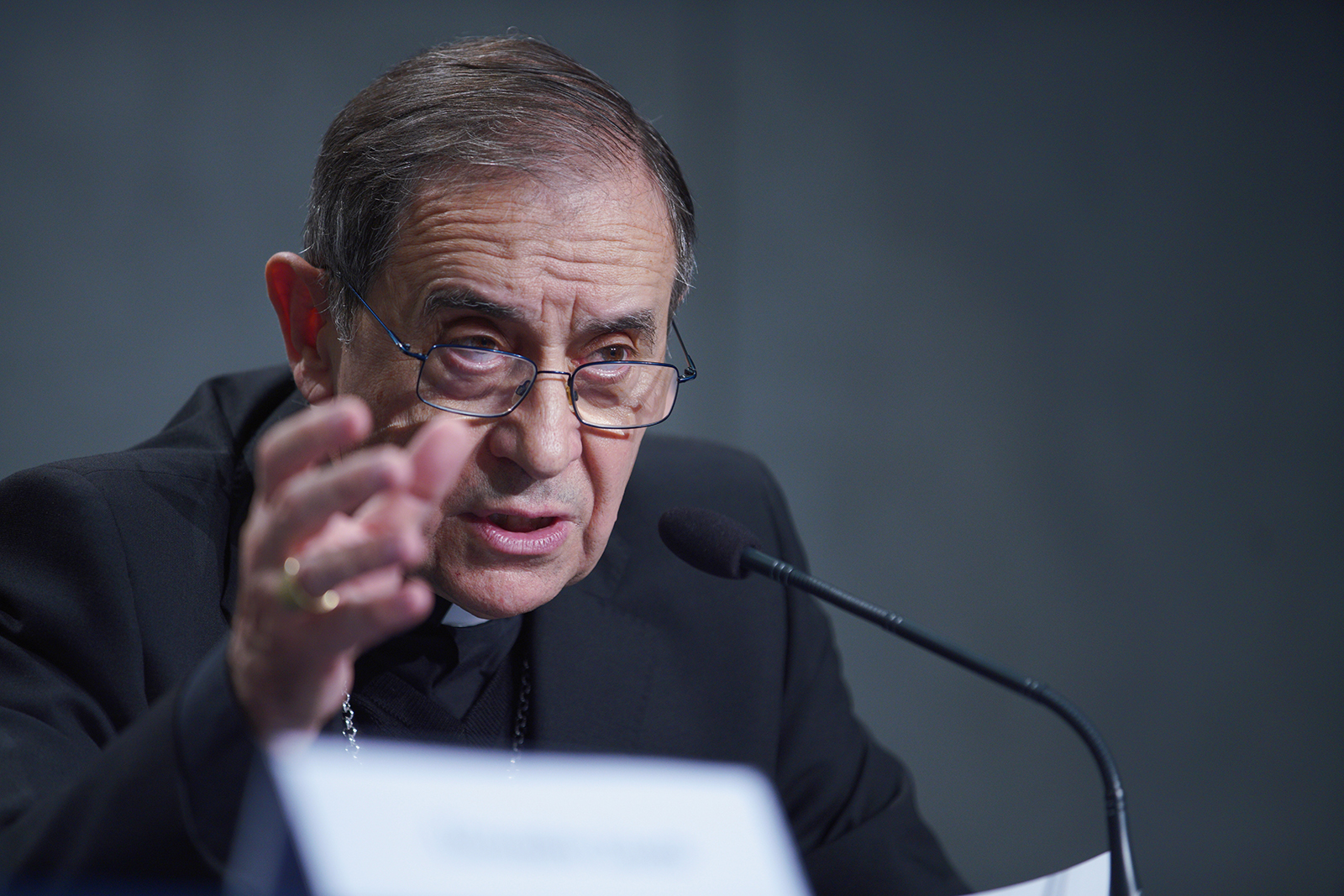VATICAN CITY (RNS) — It is as complex a legal case as the Vatican court system has ever prosecuted, with 10 lay and religious individuals on trial, including, for the first time in history, a cardinal of the church. The defendants are accused of, among other things, abuse of power, embezzlement and money laundering in an endlessly twisting financial saga centered on the purchase of a luxury property in a fashionable London neighborhood.
The trial would be a difficult one for any legal team to manage, but both prosecutors and the defense are operating according to a Vatican penal code that dates to the 1800s and that gives extraordinary powers to prosecutors backed by a nearly 2,000-year-old absolute monarch — currently Pope Francis — who can exercise his will through a form of decree taken from Roman law known as rescripts.
Defense lawyers have accused the Vatican court of employing rescripts to undermine their rights. Others have called the tribunal of Vatican judges overseeing the proceedings a kangaroo court.
Bishop Juan Ignacio Arrieta, a canon law expert, admits the Vatican “is learning” how to deal with prosecuting crimes within its walls, but he pushed back against the idea that prosecutors have an unfair advantage. “It’s normal for lawyers to bring forward only the arguments that are in his favor while ignoring other elements,” Arrieta told a group of Vatican journalists on Tuesday (May 24).
“The Vatican is not a democratic society,” Arrieta added. While this might offend the sensibility of people in the 21st century, he said, “the Vatican judicial system must be respected.”
The basis of Vatican law is canon law, supplemented by the Italian penal code of 1889, both of which need some discreet rejiggering to address legal concepts such as offshore accounts, not too mention the modern, technologized financial manipulations and real estate operations at the heart of the financial trial.
When the Vatican joined the European monetary system in 2009, the judicial system was suddenly pressed to catch up to 21st century standards for prosecuting financial crimes. “The first trials that were brought to court showed the penal and especially procedural limitations” of Catholic legal practices, he said.
The Holy See “had to get on the same level as all other countries, it had to create its legal code.” The Vatican, he said, “cannot show in front of other states that it cannot handle the situation.”

Monsignor Juan Ignacio Arrieta talks to journalists during a news conference at the Vatican’s press room, Rome, May 9, 2019. (AP Photo/Andrew Medichini)
Arrieta, the secretary of the Pontifical Council for Legislative Texts, recently published a “Course on Vatican Law” outlining the judicial system at the Vatican, which has undergone reforms under Francis. Arrieta is also part of a team working on creating a new code for penal procedures at the Vatican.
But he said the current system is sufficient for the ongoing trial. “I don’t think the Vatican prosecutor is absolutely free because it’s the judge who guides the process,” he said. While they act with fewer limitations than modern Western legal systems, “the Vatican prosecutors can’t just do as they please.”
Many of the anomalies in the Vatican legal system have been modified already to handle financial crimes, a focus of Francis’ reforms, said the bishop. “What we found at the Vatican is that things didn’t work because there were no norms,” he said.
“This can no longer be said on financial matters because the laws are there,” Arrieta said, while acknowledging that the new measures were rushed into service when Francis began pressing for greater regulation. “They were made very quickly, sometimes cut and pasted and inserted, but the laws exist,” said Arrieta.

